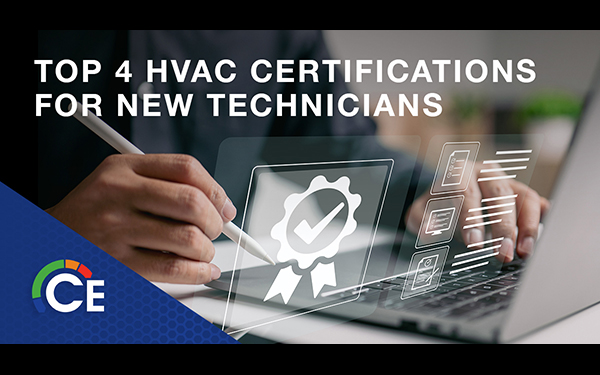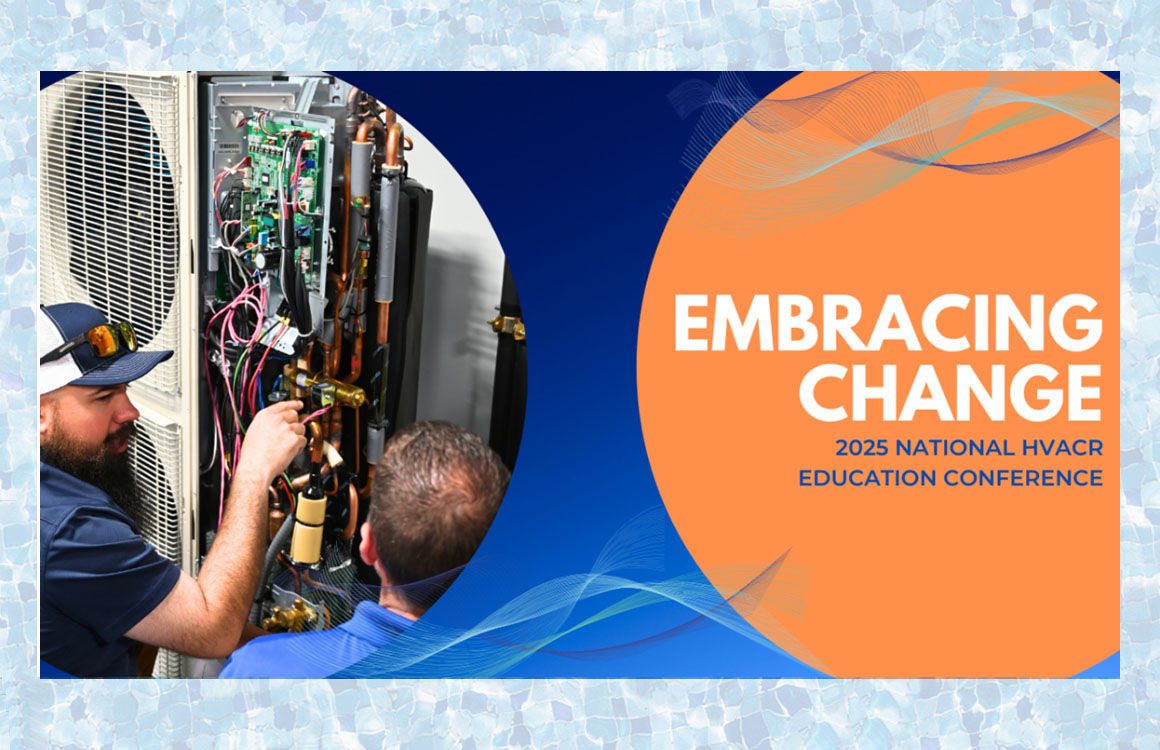
Items of Interest
4 Must-Have HVAC Industry Certifications for New Techs
Contributed by Katie Conigliaro. Excerpted from CE News.
Getting started with a career in HVAC? If so, the good news is that there is plenty of demand for knowledgeable HVAC technicians across the country. There is also a lot of room for growth within many HVAC companies. Still, it’s important for HVAC technicians to continue their training/education and explore different areas of expertise. In doing so, you can figure out where your unique strengths and interests lie and set yourself apart from other technicians working in your field.
Even more specifically, there are a handful of industry certifications that new techs may want to pursue. By better understanding what HVAC certifications are available and why they matter, beginning technicians can set themselves up for long-term career success.
Why Certifications Matter in HVAC
Most states require HVAC technicians to carry a basic certification before working in the field. However, even once you have your state-mandated training out of the way, additional certification options are available. These provide HVAC technicians with the opportunity to specialize in different types of work and gain other skills. These skills can then be used to move up the HVAC ladder, stay competitive and explore new interests.
And, of course, when hiring HVAC technicians, most companies will prefer applicants who have gone “above and beyond” state certification requirements. Additional certifications show you are motivated and proactive, which can expand your job and earnings prospects!
Top 4 HVAC Certifications for New Technicians
So, what are some of the best HVAC certifications to explore as a new technician? Ultimately, the certification opportunities that are best for you will depend on where your specific interests lie, but here are a few of the most in-demand certifications to consider.
1. NATE Certification
Perhaps the best certification you can obtain as a new HVAC technician is one from North American Technician Excellence (NATE). This nationally recognized organization has been around for decades, and the NATE certification is often considered a “gold standard” of sorts. Adding NATE certification to your resume can set you apart from other applicants and even increase your earnings potential.
To obtain this certification, you’ll need to pass a specialized exam. Once you have the NATE certification, you’ll also need to recertify every two years by completing 16 hours of continuing education or passing the specialty exam again.
2. EPA 608 Certification
Another certification opportunity to explore is the EPA 608 certification. All HVAC technicians working with refrigerants (such as in air conditioning applications) require this certification. Because refrigerant is a hazardous material that can harm the environment, the Environmental Protection Agency (EPA) requires HVAC technicians who work with it to obtain EPA 608 certification.
This certification is broken down into four types:
Type I – Certifies HVAC technicians to install and repair small appliances (such as window AC units) that require the use of refrigerant.
Type II – Certifies HVAC technicians to install, repair and dispose of appliances that contain refrigerant.
Type III – Certifies HVAC technicians to install, repair and dispose of more complex industrial equipment that contains refrigerant.
Universal – Certifies HVAC technicians to install, repair and dispose of any equipment that uses refrigerant with no restrictions.
To obtain any of these certifications, HVAC technicians must pass an EPA-approved test. Once you have received your certification, no additional testing or re-certification is necessary.
3. HVAC Excellence Certification
Another HVAC industry certification to explore is the HVAC Excellence certification, which is ideal for setting yourself apart from other technicians in the field. There are two types of certification offered through HVAC Excellence:
Professional Level Certification – Available to technicians with at least two years of documented field experience. Requires passing a written exam of 100 questions.
Master Specialist Level Certification – Available to technicians with a minimum of three years of documented field experience and possession of Professional Level Certification. Applicants must pass a written exam and a hands-on performance test.
4. HVAC Quality Installation Standard Certification
Last but not least, if you’re looking to specialize in residential HVAC design or light commercial HVAC design, the Air Conditioning Contractors of America (ACCA) offers an HVAC Quality Installation (QI) standard certification. Obtaining this designation is a great way to demonstrate to potential employers that you are knowledgeable in duct design, HVAC software, load calculations and other skills necessary to design HVAC systems.
You’ll need to enroll in ACCA’s “Technicians Field Practices for Quality Installation” online video series/course to obtain this certification. Upon completion of the course, you’ll take a 50-question online exam. If you pass the exam, you’ll earn your certification instantly.
Don’t Miss Out On the Latest HVAC News
These are just some examples of HVAC certifications that you may want to look into as a new HVAC technician. By pursuing additional certifications beyond what’s required by your state, you’ll be able to set yourself apart from other technicians and maximize your earning potential. Plus, you’ll learn some new skills along the way!
Looking for more tips on becoming successful as an HVAC technician? CE is here to help! Follow our CE news blog to stay on top of all the latest industry news and developments.










